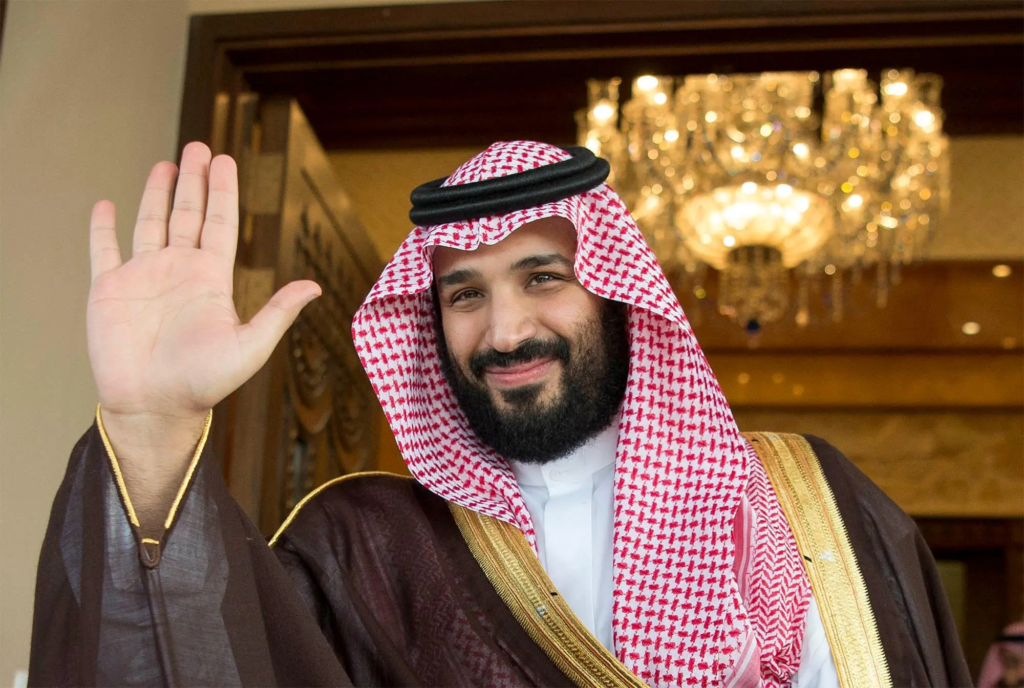Sara bint Mashour Al Saud, a significant figure within the Saudi royal family, commands attention and respect within both Saudi Arabia and the international community. As a member of the House of Saud, she embodies the tradition, culture, and progressive visions of one of the world’s most influential royal dynasties. This article delves into Princess Sara’s life, background, and contributions, providing a comprehensive overview of her role and impact.

Early Life and Family Background
Princess Sara bint Mashour Al Saud was born into the illustrious House of Saud, the ruling royal family of Saudi Arabia. Her father, Prince Mashour bin Abdulaziz Al Saud, is a son of the Kingdom’s founder, King Abdulaziz (Ibn Saud), making her a direct descendant of the dynasty’s progenitor. This lineage places her in a prominent position within the royal hierarchy, endowed with the responsibilities and expectations that come with such a heritage.
Growing up in a family that has played a pivotal role in shaping modern Saudi Arabia, Princess Sara was exposed to the intricacies of governance, diplomacy, and royal duties from an early age. Her upbringing was steeped in the values and traditions of the Saudi royal family, emphasizing a balance between tradition and modernity, a theme evident in her public and private life.
Marriage to Crown Prince Mohammed bin Salman
One of Princess Sara’s most defining aspects is her marriage to Crown Prince Mohammed bin Salman (commonly known as MBS). The Crown Prince, the Deputy Prime Minister and the Minister of Defense are central to Saudi Arabia’s contemporary politics. He has garnered global attention for his ambitious Vision 2030 plan, which aims to diversify the Saudi economy and reduce its dependence on oil.
The marriage of Princess Sara and Crown Prince Mohammed bin Salman is more than a union of two individuals; it represents the intertwining of two influential branches of the royal family, strengthening their collective influence. The couple’s relationship is also seen as a symbol of the new generation’s approach to leadership, combining deep respect for traditional values with a forward-looking perspective.
Role in Saudi Society
While Princess Sara maintains a relatively low public profile compared to her husband, her influence within Saudi society and the royal family is substantial. She is known for supporting various social and cultural initiatives, particularly those aimed at enhancing the role of women in Saudi society. This support aligns with the broader reforms championed by Crown Prince Mohammed bin Salman, which have seen significant changes in women’s rights, including the right to drive and increased participation in the workforce.
Princess Sara’s role extends beyond mere patronage; she actively shapes policies and programs that address critical social issues. Her efforts are seen in various sectors, including education, health, and social services, where she advocates for improvements that benefit the broader population. Through these endeavours, she plays a crucial part in transforming Saudi society and supporting the Kingdom’s progress towards a more inclusive and equitable future.

Contributions to Cultural and Educational Initiatives
Princess Sara has made notable contributions to education and culture. She is a staunch advocate for educational reform, recognizing that a robust education system is foundational to the country’s development. Her initiatives often focus on enhancing educational opportunities for young Saudis, particularly women, empowering them to pursue diverse career paths and contribute meaningfully to the nation’s growth.
In the realm of culture, Princess Sara supports the preservation and promotion of Saudi Arabia’s rich heritage. This includes backing projects celebrating the Kingdom’s history, arts, and traditions while encouraging contemporary cultural expressions. By fostering a vibrant cultural landscape, she helps to bridge the past with the present, ensuring that Saudi Arabia’s cultural identity is preserved even as the country modernizes.
Vision 2030 and Princess Sara’s Involvement
Vision 2030 is Crown Prince Mohammed bin Salman’s ambitious blueprint for Saudi Arabia’s future. It aims to transform the Kingdom into a global business, tourism, and innovation hub. While the Crown Prince is the face of this initiative, Princess Sara’s support and involvement are crucial to its success. Her advocacy for social reforms, particularly those that empower women and youth, aligns closely with the objectives of Vision 2030.
Princess Sara’s behind-the-scenes influence helps to drive the social changes necessary for the Vision’s success. Her efforts in promoting education, healthcare, and cultural initiatives contribute to creating a more educated, healthy, and culturally aware population, essential for achieving the Vision’s goals. By championing these causes, she ensures that the benefits of Vision 2030 are inclusive, reaching all segments of Saudi society.
Personal Life and Public Perception
Despite her influential position, Princess Sara bint Mashour Al Saud maintains a private and relatively low-key personal life. This discretion is in keeping with the traditions of the Saudi royal family, where privacy and modesty are highly valued. Nevertheless, her contributions to society and her role as the wife of the Crown Prince make her a figure of significant interest and respect.
Public perception of Princess Sara is overwhelmingly positive. She is admired for her dedication to social causes, her support for women’s rights, and her role in advancing educational and cultural initiatives. Her ability to balance her royal duties with her advocacy work earns her respect both within the Kingdom and internationally.
Future Prospects and Continuing Impact
Looking to the future, Princess Sara bint Mashour Al Saud is poised to continue playing a vital role in Saudi Arabia’s development. As the Kingdom undergoes rapid changes under Vision 2030, her contributions will remain essential in ensuring these changes are beneficial and inclusive. Her ongoing support for education, culture, and social reforms will help to build a more progressive and dynamic Saudi society.

Conclusion
Princess Sara bint Mashour Al Saud is a pivotal figure within the Saudi royal family, whose influence extends across various aspects of Saudi society. Her marriage to Crown Prince Mohammed bin Salman places her at the heart of the Kingdom’s transformation efforts. At the same time, her initiatives in education, culture, and social reform contribute significantly to the nation’s progress. As Saudi Arabia continues to evolve, Princess Sara’s role and impact will undoubtedly remain crucial in shaping the future of the Kingdom.








